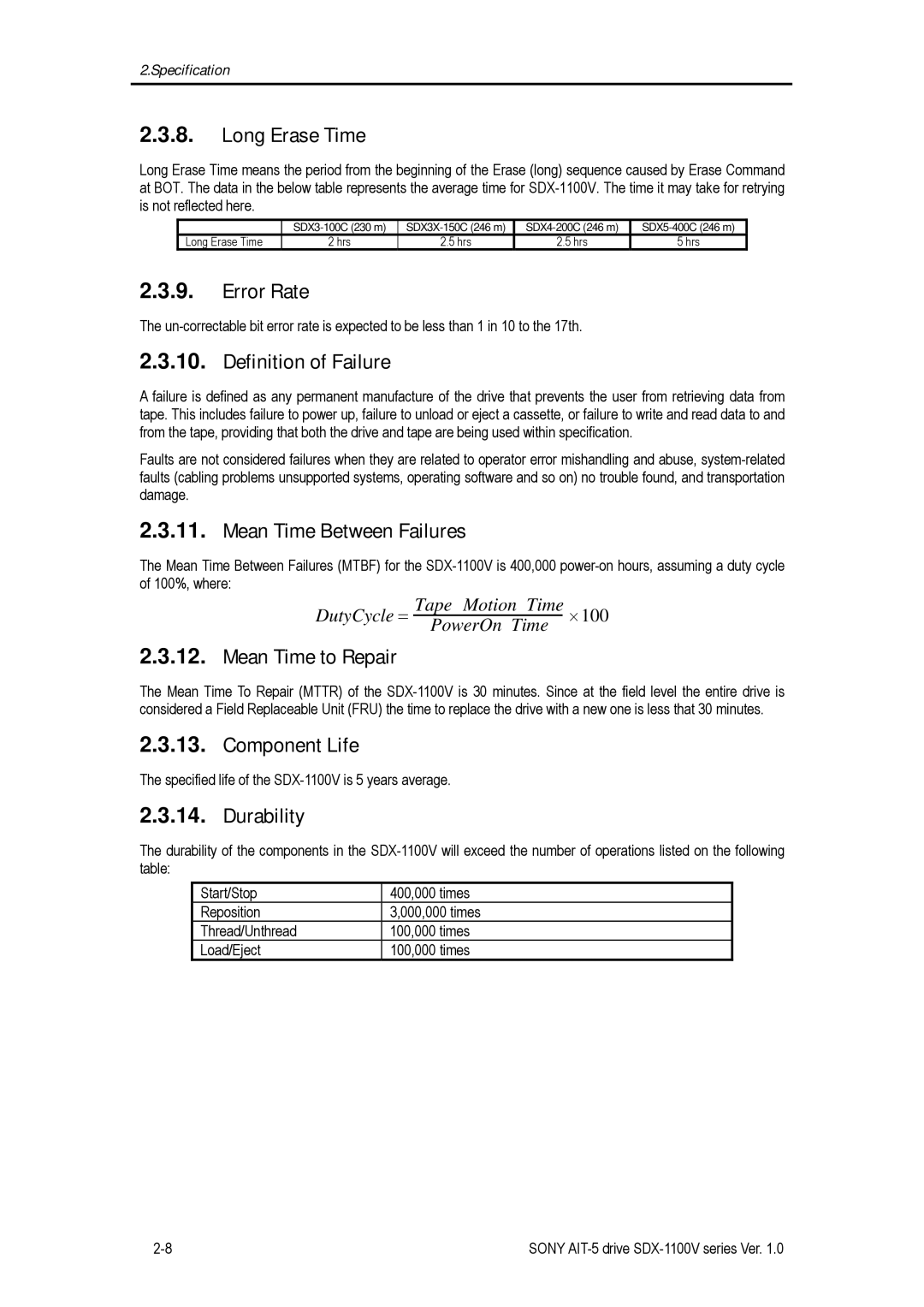
2.Specification
2.3.8.Long Erase Time
Long Erase Time means the period from the beginning of the Erase (long) sequence caused by Erase Command at BOT. The data in the below table represents the average time for
| ||||
Long Erase Time | 2 hrs | 2.5 hrs | 2.5 hrs | 5 hrs |
2.3.9.Error Rate
The
2.3.10.Definition of Failure
A failure is defined as any permanent manufacture of the drive that prevents the user from retrieving data from tape. This includes failure to power up, failure to unload or eject a cassette, or failure to write and read data to and from the tape, providing that both the drive and tape are being used within specification.
Faults are not considered failures when they are related to operator error mishandling and abuse,
2.3.11.Mean Time Between Failures
The Mean Time Between Failures (MTBF) for the
=Tape Motion Time ⋅ DutyCycle PowerOn Time 100
2.3.12.Mean Time to Repair
The Mean Time To Repair (MTTR) of the
2.3.13.Component Life
The specified life of the
2.3.14.Durability
The durability of the components in the
Start/Stop | 400,000 times |
Reposition | 3,000,000 times |
Thread/Unthread | 100,000 times |
Load/Eject | 100,000 times |
SONY |
